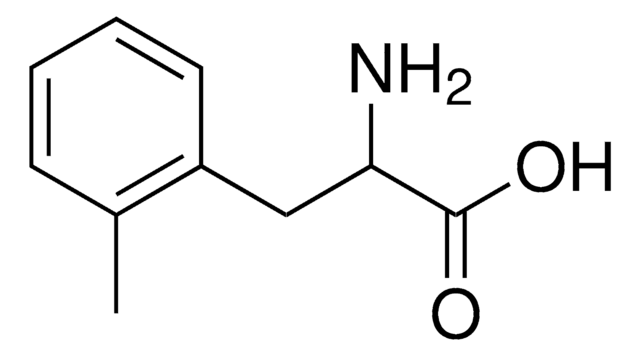32830
L-2,4-Diaminobutyric acid dihydrochloride
≥95.0%
Synonym(s):
(2S)-2,4-Diaminobutanoic acid dihydrochloride, L-2,4-Diaminobutanoic acid dihydrochloride
About This Item
Recommended Products
Quality Level
Assay
≥95.0% (AT)
≥95.0%
optical activity
[α]20/D +14.5±1.5°, c = 3.67% in H2O
reaction suitability
reaction type: solution phase peptide synthesis
mp
197-200 °C (dec.)
solubility
water: soluble 0.5 g/10 mL
application(s)
peptide synthesis
SMILES string
Cl.Cl.NCC[C@H](N)C(O)=O
InChI
1S/C4H10N2O2.2ClH/c5-2-1-3(6)4(7)8;;/h3H,1-2,5-6H2,(H,7,8);2*1H/t3-;;/m0../s1
InChI key
CKAAWCHIBBNLOJ-QTNFYWBSSA-N
Looking for similar products? Visit Product Comparison Guide
General description
Application
Caution
Signal Word
Danger
Hazard Statements
Precautionary Statements
Hazard Classifications
Eye Dam. 1 - Skin Irrit. 2 - STOT SE 3
Target Organs
Respiratory system
Storage Class Code
11 - Combustible Solids
WGK
WGK 3
Flash Point(F)
Not applicable
Flash Point(C)
Not applicable
Personal Protective Equipment
Choose from one of the most recent versions:
Already Own This Product?
Find documentation for the products that you have recently purchased in the Document Library.
Our team of scientists has experience in all areas of research including Life Science, Material Science, Chemical Synthesis, Chromatography, Analytical and many others.
Contact Technical Service










